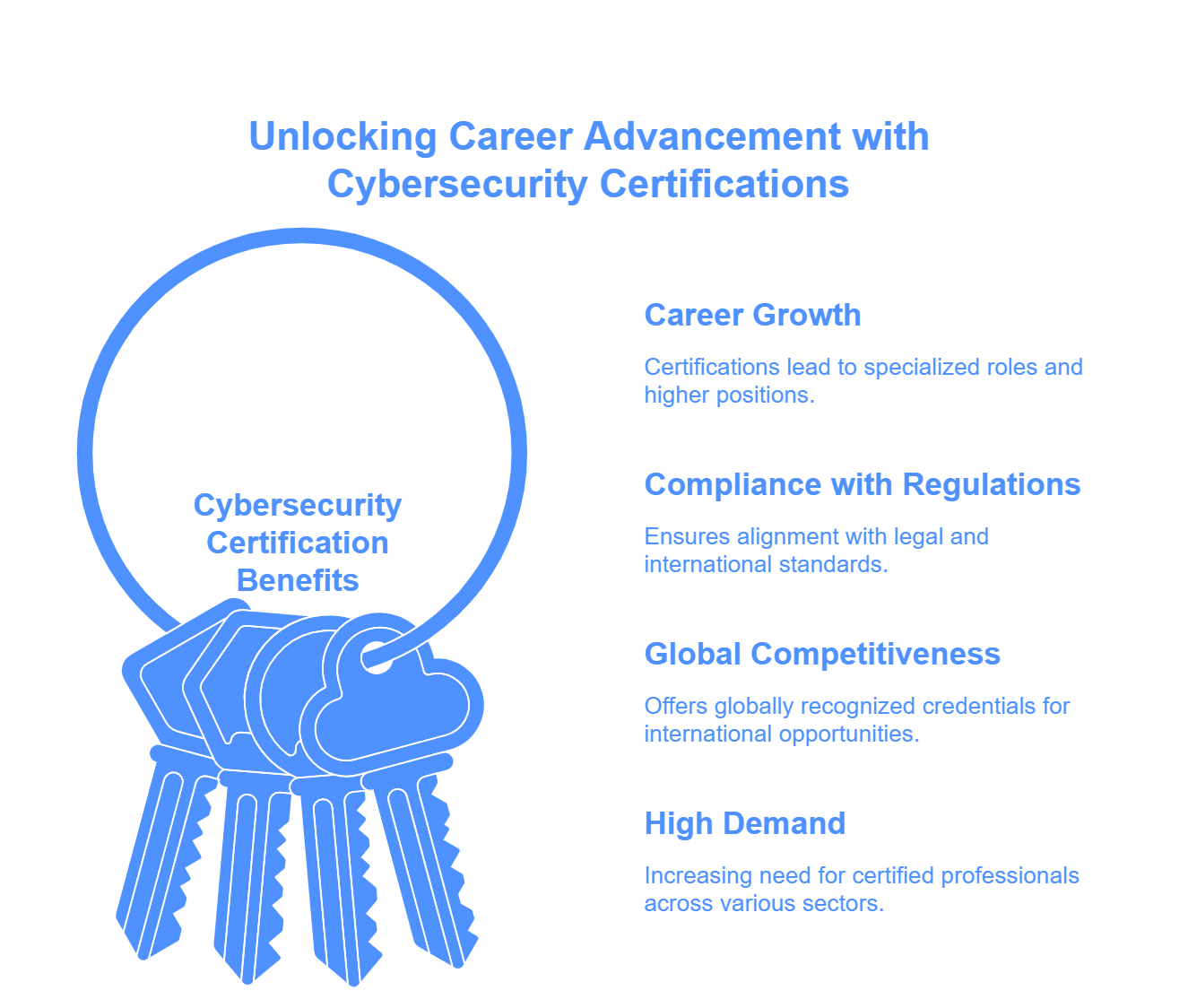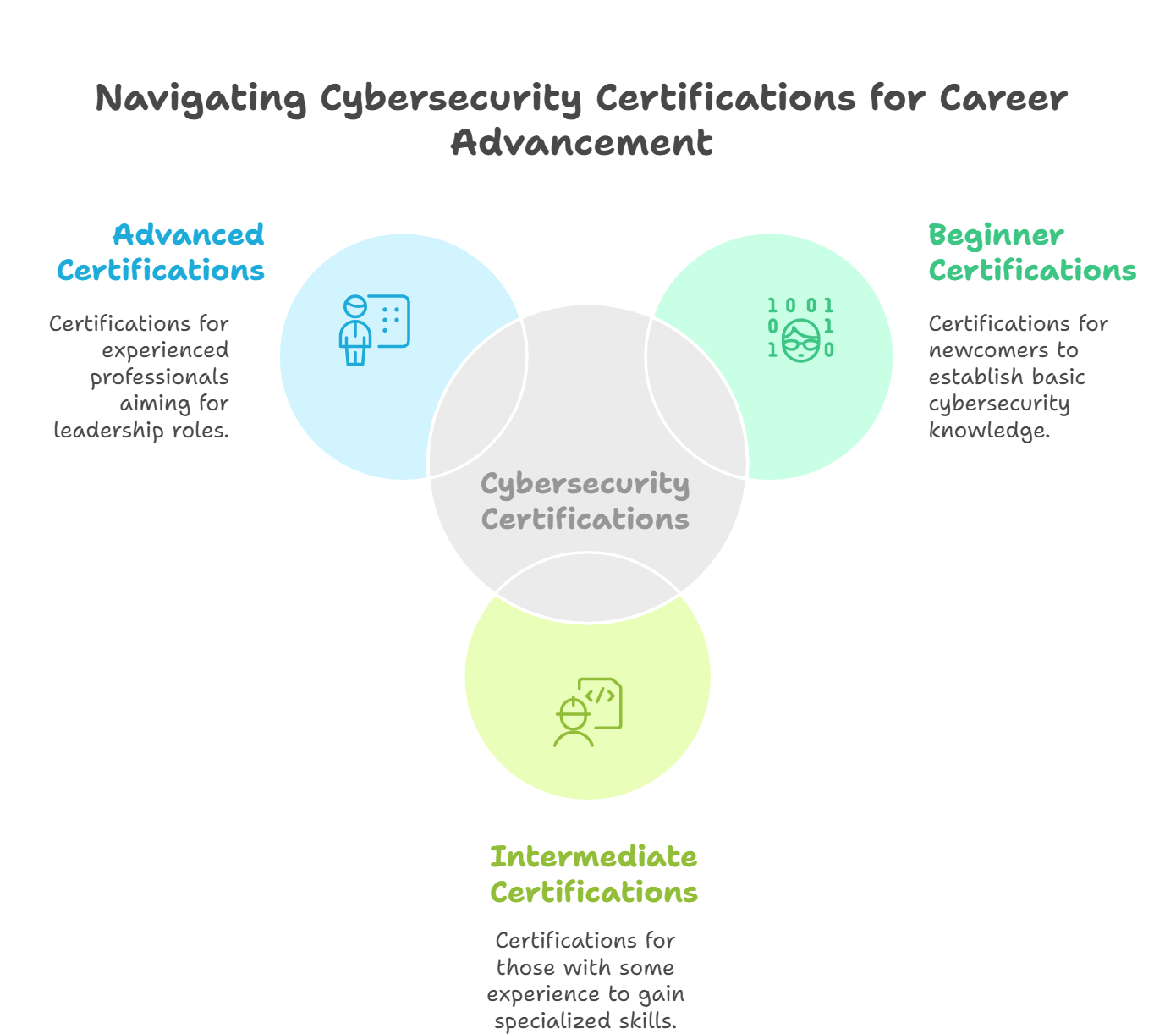Table of Contents
- Why is Cybersecurity Certification Important in the Philippines?
- Key Benefits of Cybersecurity Certification
- Types of Cybersecurity Certifications Available in the Philippines
- Why Choose Cybersecurity Certification in the Philippines?
- How ACSMI Can Level Up Your Certification Journey
- Career Opportunities After Cybersecurity Certification
- Final Thoughts
- FAQs About Cybersecurity Certification in the Philippines
As the Philippines continues to expand its digital economy and businesses transition to remote work, cybersecurity has become more crucial than ever. With increasing threats and cybercrimes on the rise, there is a growing demand for cybersecurity professionals who can protect sensitive data, networks, and systems from breaches. This trend has led to an increasing need for individuals who are certified in cybersecurity to secure the digital infrastructure of both private and public sectors in the Philippines.
Cybersecurity Certification Price varies based on the certification type, provider, and level of expertise required. Cybersecurity certification in the Philippines acts as an official validation of your skills and expertise, ensuring you are well-prepared to tackle the latest cyber threats and safeguard the organizations you work for. Whether you’re an aspiring IT professional or someone looking to elevate your career, obtaining the right certification can set you apart in this competitive and highly rewarding industry.
This guide will walk you through everything you need to know about the various cybersecurity certifications available in the Philippines, how to choose the right certification based on your skill level and career goals, and how programs like ACSMI’s 400+ modules can enhance your cybersecurity expertise.
Why is Cybersecurity Certification Important in the Philippines?
The Philippines is one of the fastest-growing digital markets in Asia. However, with this growth comes an increased risk of cybercrime, with the Philippines experiencing a surge in cyberattacks and data breaches. Regulatory frameworks like the Data Privacy Act (DPA) have placed heightened emphasis on the need for strong cybersecurity measures, making certification even more crucial for professionals in the field.
Organizations and businesses in the Philippines understand the need for skilled cybersecurity personnel to ensure their systems are protected. As these businesses navigate an increasingly complex regulatory landscape, cybersecurity certifications prove your ability to meet legal requirements and industry standards, making you a highly desirable candidate in the job market.
Key Benefits of Cybersecurity Certification
Obtaining a cybersecurity certification in the Philippines doesn’t just enhance your skills but offers numerous career advantages:

1. Career Growth Opportunities
Cybersecurity certifications open doors to various specialized roles like Penetration Tester, Security Analyst, and Compliance Auditor. They provide a pathway to higher-paying positions and leadership roles within organizations, such as Cybersecurity Manager or Chief Information Security Officer (CISO).
2. Compliance with Regulations
In the Philippines, certifications ensure that your skills align with the legal requirements set by frameworks such as the Data Privacy Act (DPA) and international standards like ISO/IEC 27001 and GDPR. This ensures that you are well-equipped to navigate the ever-evolving regulatory landscape and secure sensitive data.
3. Global Competitiveness
Cybersecurity certifications offered in the Philippines are globally recognized. This allows you to be part of the global workforce, giving you the ability to work with international companies or pursue opportunities abroad.
4. High Demand Across Industries
Cybersecurity professionals are in high demand across various sectors in the Philippines. Finance, healthcare, government, retail, and even e-commerce companies are increasingly looking for certified professionals to safeguard their digital assets from cyber threats.
Types of Cybersecurity Certifications Available in the Philippines
Whether you're just entering the field or looking to advance your career, there are cybersecurity certifications in the Philippines tailored for various skill levels. These certifications cover fundamental topics, intermediate skills, and advanced expertise in specialized areas.

Beginner-Level Certifications
For those new to cybersecurity, beginner-level certifications are ideal. They help you gain a solid understanding of basic cybersecurity principles and practices.
CompTIA Security+
This certification is perfect for individuals new to cybersecurity. It covers fundamental topics like network security, risk management, and threat mitigation. It is globally recognized and provides the foundational skills necessary for starting a career in cybersecurity.
Certified Cybersecurity Technician (CCT)
The CCT certification is an excellent stepping stone for those interested in pursuing a career in IT security. It provides essential technical and security awareness skills needed to perform tasks like network monitoring, malware analysis, and risk assessment.
These certifications are the perfect starting point, helping you gain a basic understanding of cybersecurity concepts while preparing you for more specialized training.
Intermediate Certifications
For those with some experience in IT or cybersecurity, intermediate certifications offer more specialized skills and knowledge.
Certified Ethical Hacker (CEH)
As one of the most sought-after certifications in cybersecurity, the CEH is designed for individuals interested in ethical hacking and penetration testing. This certification teaches the skills needed to identify and fix vulnerabilities by simulating attacks in a controlled and ethical manner.
Cisco Certified CyberOps Associate
The CyberOps Associate certification is ideal for individuals aiming for roles such as Security Operations Analyst. This certification focuses on the essential areas of cybersecurity operations, including threat analysis, monitoring, and incident response.
These intermediate certifications help you dive deeper into specialized areas such as ethical hacking and security operations, making you a more competitive candidate in the job market.
Advanced Certifications
Advanced certifications are for seasoned professionals aiming for leadership roles in cybersecurity. These certifications often focus on strategic planning, governance, risk management, and advanced threat mitigation.
Certified Information Systems Security Professional (CISSP)
Recognized globally, CISSP is one of the most prestigious cybersecurity certifications. It is perfect for professionals who want to move into leadership positions such as CISO or Cybersecurity Consultant. The certification focuses on risk management, security architecture, identity management, and more. It requires at least five years of work experience in cybersecurity.
Certified Information Security Manager (CISM)
CISM, offered by ISACA, is designed for professionals aiming for roles in cybersecurity management. The certification focuses on IT governance, risk management, compliance, and security auditing. It is ideal for those in managerial roles or consulting positions.
Why Choose Cybersecurity Certification in the Philippines?
The Philippines offers a unique advantage for aspiring cybersecurity professionals. The country is home to a growing tech ecosystem, including startups, tech hubs, and global outsourcing centers. Cybersecurity Certification Test options available in the Philippines stand out for their practical approach, blending globally recognized content with local compliance guidelines under laws like the Data Privacy Act (DPA).
Cybersecurity Certification Test programs in the Philippines are also focused on real-world application, making them highly relevant to both local and international job markets. Training programs incorporate hands-on labs, case studies, and mentorship opportunities that ensure you are job-ready once you complete the program.
Programs like ACSMI not only fulfill local requirements but also help elevate your global competitiveness by providing you with the expertise needed to tackle cybersecurity challenges both in the Philippines and beyond.
How ACSMI Can Level Up Your Certification Journey
The ACSMI Certification provides an in-depth, structured learning environment with over 400 modules, catering to professionals at all levels. The ACSMI program bridges the gap between theoretical knowledge and practical, hands-on experience, giving you the skills necessary to excel in the cybersecurity field.
Features of ACSMI Certification
-
Comprehensive Curriculum: The program covers everything from basic risk management to advanced threat mitigation strategies. It provides a holistic understanding of cybersecurity, addressing both foundational and advanced topics.
-
Interactive Labs: ACSMI integrates real-world simulations, including ransomware attacks, compliance audits, and vulnerability assessments. These labs help you build practical skills that are essential in addressing real-world security challenges.
-
Global Standards: ACSMI modules are aligned with globally recognized compliance frameworks such as GDPR, PCI-DSS, and ISO/IEC 27001, ensuring you are prepared for international cybersecurity roles.
-
Tailored Local Content: ACSMI’s training program also focuses on specific local requirements, such as compliance with the DPA (Data Privacy Act) in the Philippines. This ensures that you are well-versed in the regulatory landscape in the country.
With ACSMI, you gain the knowledge and practical experience that make you a well-rounded cybersecurity expert, ready to tackle any challenge in both the local and global cybersecurity job markets.
Career Opportunities After Cybersecurity Certification
Cybersecurity certification in the Philippines opens the door to a range of lucrative and exciting career opportunities. With the increasing number of cyber threats, skilled professionals are highly sought after in various sectors, including finance, healthcare, retail, and government.
Common Cybersecurity Roles
-
Security Analyst: These professionals monitor networks, detect vulnerabilities, and respond to threats in real time. They are responsible for protecting the organization's systems from attacks.
-
Penetration Tester: Penetration testers identify and exploit vulnerabilities in systems to assess security. This role requires advanced knowledge of ethical hacking techniques.
-
Incident Responder: Incident responders manage and lead recovery efforts during cybersecurity incidents. They ensure that data is recovered and systems are restored after an attack.
-
Compliance Auditor: Compliance auditors assess whether an organization adheres to regulatory standards, helping organizations avoid legal risks.
Salary Insights
In the Philippines, entry-level cybersecurity professionals can expect to earn around PHP 30,000 to PHP 50,000 per month. However, with the right certifications, salaries can increase dramatically. Experienced professionals in managerial roles can earn over PHP 100,000 per month, depending on the certifications they hold and the industry they work in.
Final Thoughts
A cybersecurity certification in the Philippines is not just a credential—it’s a career accelerator. With the increasing demand for cybersecurity professionals across various industries, investing in the right training can significantly enhance your job market value.
Certifications from programs like ACSMI provide the practical skills, global relevance, and local compliance knowledge needed to excel in the field. By earning these credentials, you position yourself for exciting opportunities both locally and internationally. Don’t wait—take the next step in your cybersecurity career today!
FAQs About Cybersecurity Certification in the Philippines
Why should I choose a cybersecurity certification in the Philippines?
Cybersecurity certifications in the Philippines not only meet global standards but also address local regulations, such as compliance with the Data Privacy Act. This makes them highly relevant for professionals working in the country.
Which certification is best for beginners?
CompTIA Security+ and Certified Cybersecurity Technician (CCT) are both widely recognized as beginner-friendly certifications that provide a solid foundation in cybersecurity concepts.
How long does certification take?
The duration varies depending on the program and the level. Beginner certifications can take a few weeks to complete, while advanced certifications like CISSP or CISM may take several months.
Are there hands-on training opportunities?
Yes, certifications like ACSMI emphasize practical training with labs and simulations to ensure you gain hands-on experience in solving real-world cybersecurity issues.
What industries require cybersecurity certifications in the Philippines?
Finance, healthcare, retail, and government sectors are some of the key industries where cybersecurity professionals are in high demand due to the sensitive nature of the data they handle.

Leave a Reply